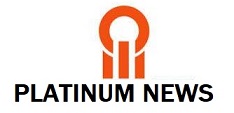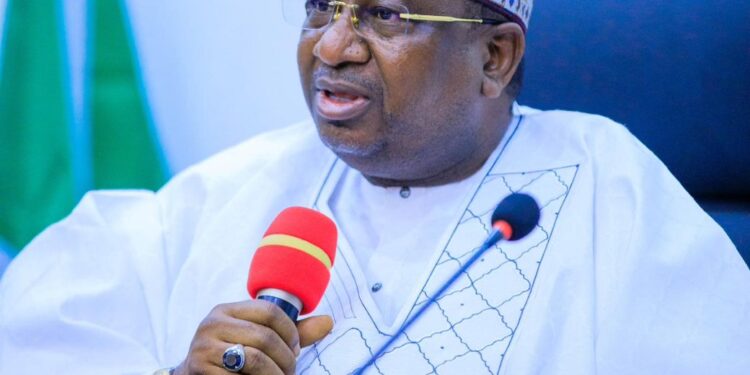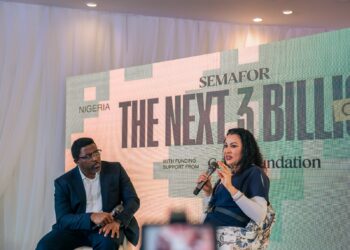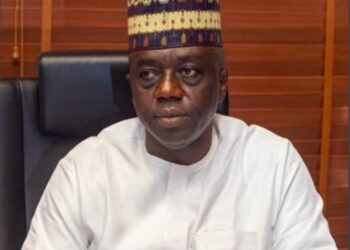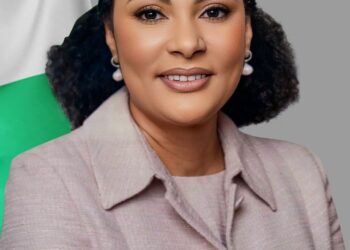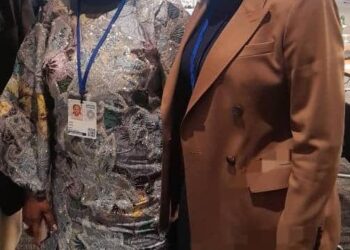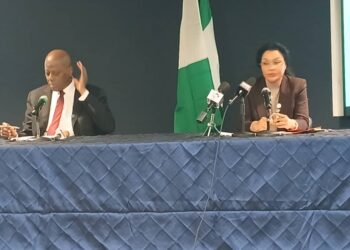KEBBI TO PARTICIPATE IN THE 2025 SPRING MEETINGS OF THE WORLD BANK GROUP AND THE INTERNATIONAL MONETARY FUND (IMF)
Kebbi State has received a confirmation letter to participate in the 2025 Annual Spring Meetings of the World Bank Group and the International Monetary Fund.
The Special Adviser to the Governor on International Donor Agencies, Hon. Usman Buhari Ali Gwandu is set to participate in the meetings, scheduled to hold from Monday 21 to Saturday 26 April at Washington DC, United States of America (USA).
The invitation detailed that “the Annual and Spring Meetings each year bring together central bankers, ministers of finance, government representatives at various levels, development partners, private sector executives, civil society representatives, and academics to discuss the state of the global economy and issues of international concern, such as the growth outlook, financial stability, and poverty reduction.”
It also reveals that “the meetings are the only gathering of its kind in the world and a unique forum for discussion on economic policymaking. Several events take place on the side of the Annual and Spring Meetings, including country group meetings, press conferences, civil society forums, as well as high-level seminars and talks.”
In a statement personally signed by the Special Adviser to the Governor, Hon. Usman Gwandu informed that the Kebbi State Government has been a beneficiary of several World Bank supported projects and interventions in many facets over the years which are being implemented by different government Ministries, Departments, and Agencies (MDAs) in the State.
The ongoing projects and interventions include the Agro-Climatic Resilience in Semi-Arid Landscapes (ACReSAL), Adolescent Girls Initiative for Learning & Empowerment (AGILE), Rural Access & Agricultural Marketing Project (RAAMP), Nigeria for Women Project Scale-Up (NFWP-SU), NG COVID 19 Action Recovery & Economic Stimulus (CARES) Program, and the State Action on Business Enabling Reforms (SABER) Program.
He also stated that the Kebbi State Governor, His Excellency Comrade Dr Nasir Idris Kauran Gwandu, under the Kebbi State Donor Agencies Coordination Office established in August 2023, has supported the office in facilitating and inclusion of Kebbi State in several World Bank supported projects to be implemented by various MDAs in the State.
Already, the Immunization Plus and Malaria Progress by Accelerating Coverage and Transforming Services (IMPACT) Project has been activated with signing of the Subsidiary Loan Agreement (SLA), release of the state counterpart funds, and establishment of the Project Implementation Unit (PIU) under the Kebbi State Ministry of Health.
From the 225 Basic Healthcare Provisional Fund (BHCPF) across the state, the IMPACT project will see to the revitalization of 197 Primary Health-Care Centre (PHC) Facilities, including Upgrade of Tier 1 PHCs to Tier 2, renovation of Tier 2 main PHC buildings, provision of staff quarters & security posts, water supply, and electricity. The Kebbi State Government has already revitalized 28 of the Primary Health Care facilities.
He further stated that the project will see to the provision of quality health care services in all the 225 PHCs in the state, including supporting health care workers (CHEWS & SBAs) and provision of essential drugs & commodities, demand creation activities, health systems strengthening, and technical assistance in areas of monitoring & evaluation, health care waste management, gender based violence, and environmental & social safeguarding. Other activities include several operations performance framework payments to achieve project objectives.
He further informed that the Kebbi State Donor Agencies Coordination Office facilitated the inclusion of Kebbi state into the Sustainable Urban and Rural Water Supply, Sanitation and Hygiene (SURWASH) Program-for-Results, which led to the recent assessment visit conducted by a joint team from the World Bank and the Federal Ministry of Water Resources to the state to determine the states readiness for participation in the project through the Kebbi State Ministry of Water Resources.
Efforts are also in place by the Kebbi State Donor Agencies Coordination Office to see that Kebbi State benefits from learning and technical support components of the Innovation Development and Effectiveness in the Acquisition of Skills (IDEAS) Project, and the Sustainable Procurement, Environmental and Social Standards Enhancement (SPESSE) Project, as funding for these two projects are rounding up in 2025 and 2026, respectively.
Other World Bank supported projects being facilitated by various MDAs in the state which are at various progress levels include the Livestock Productivity and Resilience Support Project (L-PRESS) under the Kebbi State Ministry of Animal Health, Fisheries, and Husbandary, the Distributed Access through Renewable Energy Scale-up (DARES) Project through the Rural Electrification Agency (REA), and the Human Capital Opportunities for Prosperity and Equity (HOPE) Project, which is a multi-sectoral project with components of education, health, and governance.
The Special Adviser to the Governor, Hon. Usman Buhari Ali Gwandu, recently participated in the World Bank Conference on Public Institutions for Development on Enabling the Private Sector, January 30-31, 2025, which featured academics, development organizations and policymakers who shared research findings, best practices, and innovative approaches to improve public institutions, with a thematic focus on enabling the private sector.
Public institutions are ministries, departments, and agencies (MDAs) – public sector organizations responsible for implementing specific policy mandates. These are the meso-level government bodies tasked with the day-to-day work of policy implementation, from collecting taxes and building roads to educating children and promoting public health. As such, the effectiveness of public institutions is critical for effective policy implementation and, by extension, for development outcomes.
The private sector is a major driver of economic growth and development, but it needs a functioning public sector to thrive. The private sector creates jobs, generates income, and contributes to the overall expansion of the economy. Through entrepreneurship, innovation, and investment, it stimulates productivity and competitiveness and contributes to climate-friendly investments. Public institutions provide the public goods and services that allow households and firms to succeed, and they set and enforce the rules that enable inclusive, resilient, and sustainable economic development. Yet they often fall short and fail to meet people’s needs, demands, and expectations. As such, understanding what helps public institutions succeed – and how organizations like the World Bank can best support them – is critical for enabling private sector-led growth and development.
The World Bank Group now makes it easier and more attractive for private companies to do business in developing countries through providing finance for private companies, promoting innovation and entrepreneurship, and strategic collaboration on development challenges.
